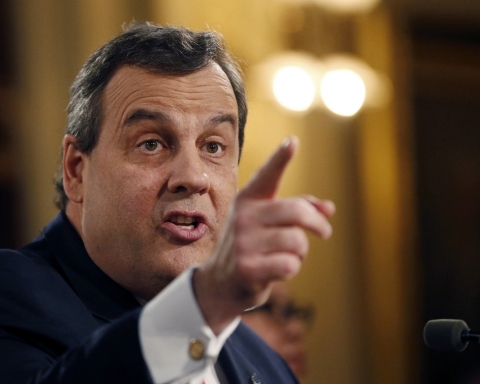It’s not likely.
We’ve been told our whole lives it’s not possible.
But here we are, a week from the general election, and we are the closest we have been in our lifetimes to a Twelfth Amendment crisis. The two least popular major party nominees that anyone seems to remember continue their race to the bottom of the country’s expectations.
A newly reopened FBI investigation into Hillary Clinton’s emails has sent her campaign spiraling from an unpopular but safe victory into last-minute suspense. Donald Trump is surging back to safety in red states where Clinton was threatening decades of Republican control. And by default, he is surging in swing states, too.
Nevada, Arizona, Florida, Ohio, Iowa, and North Carolina are within striking distance.
Meanwhile, there’s a storm of unexpected proportions sweeping one of this country’s largest, best organized, and best funded religious minorities. Independent candidate Evan McMullin is defying all expectations by blowing decades-old third parties out of the water in his sudden surge to the top of the polls in Utah.
Darrell Castle of the Constitution Party, for example, has been there basically since Howard Philips founded the Party in the mid nineties. He ran for Vice President in 2008, when the endorsement of Republican Congressman Ron Paul propelled the Chuck Baldwin/Darrell Castle ticket to the highest popular vote in the Party’s history. But despite their similar views on most issues and similar positioning to grab the far right and social conservative voters put off by Donald Trump, Castle just can’t compete.
Evan McMullin has tapped something that one can only tap by being in the right place at the right time.
The Mormon majority in Utah, supported by powerful minorities throughout the rural west, is well funded, highly networked through the LDS Church, and more than a little politically opinionated. Even Glenn Beck weighed in with his Mormon credentials to endorse the upstart independent.
If Utah’s 6 electoral votes go to Evan McMullin, either by McMullin electors winning the popular vote outright, or Republican electors bolting the Party to vote for him, those 6 contribute to neither Trump nor Hillary. Contrary to popular assumption, the spoiler effect does not apply at the Electoral College level, because, unlike the popular vote within a given state, the Electoral College requires a majority, not a plurality.
Therefore, if 6 votes go to McMullin in Utah, those votes will not count toward either major party nominee achieving the 270 vote majority.
Throw out a hypothetical: Trump rises just a tad in the polls and wins Arizona, Nevada, North Carolina, Ohio, and Florida, in addition to the states in which he is already leading strongly.
Now the tricky one is we still need New Hampshire. It is not off the table, given his overwhelming support in the primary and Clinton’s overwhelming defeat. The loyalty to Bernie Sanders and the bitterness against Clinton for stealing the nomination runs deep there. Turnout alone may just decide New Hampshire, which is exactly what a knife-edge election can bring about. Is it likely? Not terribly, but what has been this election cycle?
With those states, Clinton comes just two electoral votes short of winning, which tosses the election to the House of Representatives.
The question then becomes who will the Republican-led House of Representatives choose from among the top three candidates? This question is further complicated by the Article II rule that the House of Representatives must vote “by state.”
A quick perusal of the 50 states shows a strong majority with Republican-majority delegations. At first glance this leans toward a Trump election.
But would Paul Ryan, longtime critic of Trump, enforce the once intimidating but lately faltering power of the Speakership to force Republican members to support the nominee? Maybe. But that’s a big maybe.
Even more so, I have to ask if Democrats in majority Republican delegation states would prefer McMullin to Trump as a compromise. Say a state has 10 members of Congress: 6 Republicans and 4 Democrats. 4 of the Republicans support Trump, but 2 support McMullin. The Democrats in the delegation would prefer Clinton, but if they know they can’t swing their state’s vote for Clinton, they may join the 2 McMullin supporters as a compromise. The state goes McMullin 6 to 4.
Add up enough states doing this, and there is absolutely no way of knowing how it will come out. The House of Representatives has not weighed in on an election like this since 1800 (or 1876 if you count the Hayes/Tilden controversy). Heck, it hasn’t come close since 1968, the last time a minor candidate won electoral votes.
Can a fringe Capitol Hill staffer with no governing experience cruise into the presidency with a tiny minority of the popular vote? It all depends on how close the Electoral College vote is next Tuesday. It would be the crowning achievement in which none of the traditional rules apply.










So many people are angry at the garbage the two parties gave us but they will still vote for one of the pices of trash.